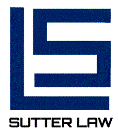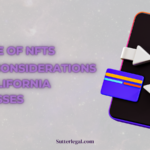By Sutter Law a San Francisco and Silicon Valley Business Law and Transactional Law Firm
Table of Contents
- What is a SAFE Note?
- The Nuts & Bolts of a SAFE Note
- Founder-Friendly Aspects of SAFE Notes
- Considering the Downside of SAFE Notes
- SAFE Notes: A Strategic Choice
- There are some major pros and cons to the Safe Note.
- conclusion
What is a SAFE Note?
Simple Agreements for Future Equity, globally known as (SAFE notes), are reshaping the venture financing scenario for startups.
Spawned in Silicon Valley, they’ve become popular due to their simplicity and speediness in raising funds.
Lowering transaction costs and enhancing the ease of investment reflects the entrepreneur-friendly nature of SAFE notes.
Like any other financial instrument, SAFE notes bring their own degrees of nuance. This article probes into exploring whether SAFE notes are genuinely beneficial for your startup.
As a San Francisco and Silicon Valley Transactional law firm we get asked about the best way to fund a startup.
There are several different financial instruments used in Silicon Valley and San Francisco.
The new kid on the block is Y Combinator’s (YC) Safe Note. S.A.F.E. Stands for Simple Agreement for Future Equities.
YC developed this new agreement to help simplify the funding process.
The SAFE is different than a convertible note in that it is not debt, the SAFE is actually a Futures agreement between the company and the investor.
YC released several versions of the note, with and without interest, with and without a cap.
The Nuts & Bolts of a SAFE Note
A SAFE note is a warrant that permits investors to purchase shares in a future equity round when the company’s valuation is determined.
The agreement happens without setting a specific share price at the time of the initial investment, offering flexibility to startups and minimizing immediate dilution risk.
This also reduces negotiation variables, paving the way for smoother funding discussions.
Founder-Friendly Aspects of SAFE Notes
SAFE notes don’t accrue interest or maturity, meaning startups face no repayment obligations until further funding is raised, a certain valuation is achieved, or the company is acquired.
This leads to streamlined financial administration and balance sheets.
Considering the Downside of SAFE Notes
SAFE notes are not flawless. Traditional company valuation forces investors and startup owners to have realistic expectations about future business performance – an aspect bypassed in SAFE notes.
Furthermore, when SAFE notes are converted to equity during a priced round, multiple SAFE notes issued can lead to share dilution confusion.
SAFE Notes: A Strategic Choice
The decision to opt for SAFE notes needs to be strategic, governed by variables like startup stage, risk absorption capacity of investors, business environment dynamics, and the startup’s nature.
There are some major pros and cons to the Safe Note.
Pro: Since the note is not debt, this releases the company of its fiduciary duty to the investor.
Pro: The note truly is simple. It’s easy to read, and less easy to comprehend.
Pro: It’s a single document, whereas the convertible note consists of a Note Purchase Agreement (NPA) and a Convertible Note (Note).
Con: Unless you are a YC batch company you may have some resistance from Angel Investors.
Con: Most Angel Investors are accustomed to the standard terms of the Convertible Note.
conclusion
In our experience as a San Francisco and Silicon Valley business law firm, the SAFE is still getting push-back from Angel Investors.
Although we do like the SAFE, we generally see the Convertible Note being used more offend than the SAFE.
If you would like to know more about funding your Startup Corporation feel free to reach out the Sutter Law for a free consultation with an experienced business attorney.






